CBD Oil Benefits: How Does It Work? Uses, Doses, Methods & More
If you’ve been keeping track of the news lately, especially around health products and supplements, you’ve likely heard of something known as CBD.
This ingredient has been taking the world by storm, not least due to the growing legality of cannabis in multiple countries and US states, but also due to an increasing range of evidence surrounding the benefits of CBD oil.
But how do you know who to trust?
With some CBD companies marketing their product as some miracle cure-all, and scientific research being only limited to a few countries due to issues around legality, finding the objective, scientific facts around CBD and its benefits can be challenging.
If this is something you’ve been interested to learn more about but haven’t been sure where to look, you’ve landed in the right place!
We’re going to start with the basics and take you right through the science of CBD and other cannabinoids to answer the following questions, and more:
- What is CBD oil?
- What are the benefits of CBD oil?
- What are the side effects of CBD oil?
- Can anybody take CBD oil?
We will also breakdown how the endocannabinoid (your own internal cannabinoid) system works, what to look for in a high-quality natural CBD oil, and the optimal way to take CBD oil for the best results.
Everything will be backed up with links to scientific studies, so if you want to read further into anything specific, please feel free to follow the included links.
But first, let’s start with the basics:
What is the Difference Between THC and CBD?
This is the first thing you need to understand about CBD. Many people wonder about things like:
“Is CBD oil addictive?”
“Will CBD oil make me high?”
The answer is no, and the difference between CBD and THC is the key to understanding this. Let us explain:
Cannabinoids Definition
Cannabinoids are a group of 113 closely related compounds that are found within the cannabis (including hemp) plants, each with their own series of interactions within the endocannabinoid system and therefore, their own effects on the human body.
Amongst these 113 cannabinoids, there are two in particular that are the most prevalant within the cannabis plant, and that are the most famous.
These are, of course, THC and CBD.
What is THC?
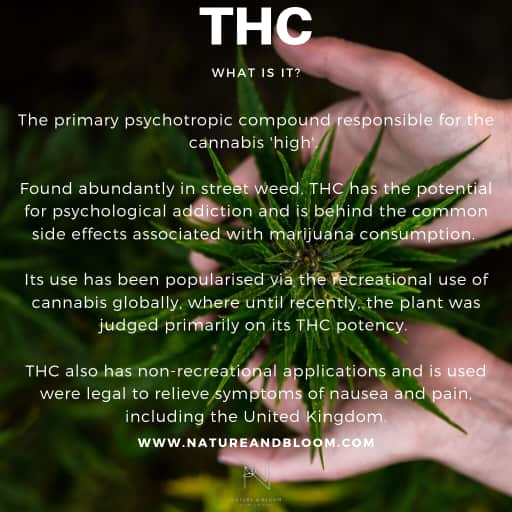
THC is short for Tetrahydrocannabinol.
This is the main psychoactive substance that is found in cannabis and the ingredient for which recreational smokers use the plant.
The effects of THC include:
- Giggles or a euphoric sense of happiness
- The munchies and increased appetite
- Laziness and lethargy
THC has an intoxicating effect on the human brain, making people who consume it feel “high”.
It is also illegal for recreational use in the UK and most US states, meaning products that contain THC oil or other forms of THC above trace amounts will be unlawful, psychoactive and potentially addictive.
CBD is very different from THC.
What is CBD?
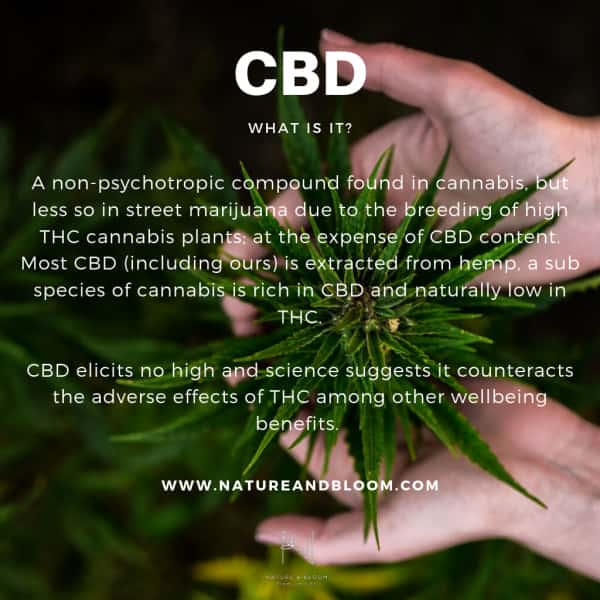
CBD is short for Cannabidiol.
This substance is present in cannabis plants, but in lower percentages than THC.
However, when it comes to hemp plants, which are industrial forms of cannabis grown for uses besides recreational smoking, CBD content is much higher than THC content.
Legally, industrially grown hemp plants in the USA must contain <0.3% THC.
Across the pond in the UK, the rules are stricter and plants must contain no more than 0.2% THC. But, this threshold applies only to plants used for their fibre and stalks, and in the UK the CBD flower (containing the highest concentration of CBD) itself is illegal under the Misuse of Drugs Act 1971, and it is destroyed upon harvest.
As a result, counterintuitively all CBD consumed in the UK today is imported, as although the hemp flower is illegal, ‘processed’ Cannabidiol derived from hemp is legal, including CBD oil.
In terms of products on the shelf, all products must contain no THC or CBN.
No High, No Worries
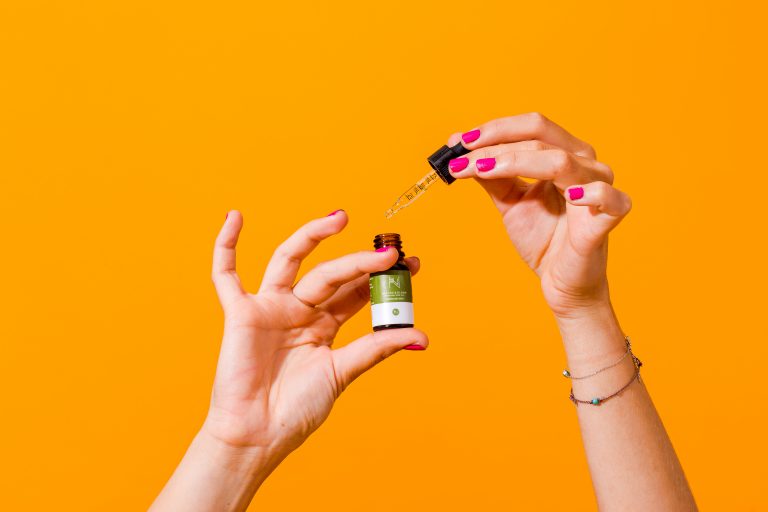
You cannot get high using CBD. Period! CBD interacts with our endocannabinoid system to provide a variety of well being benefits.
It is also completely legal in the majority of countries and US states, even when THC and cannabis are not.
Is CBD Safe?
If you are concerned about CBD’s potential for addiction, nasty side effects or withdrawal, don’t be.
In 2018 the World Health Organisation (WHO) stated that “the substance was not found to have psychoactive properties, and presents no potential for abuse or dependence”.
This is the first and most important thing to know about CBD, because while CBD and THC both come from the same plant and are connected like siblings, they are still very different compounds, and should never be confused.
What is CBD Oil?

CBD oil is just what you’d expect from reading the above – it’s an oil made from the hemp plant which uses Cannabidiol as its main ingredient and it’s combined with a base oil as a diluent, often hemp seed oil or MCT oil.
This limit on THC content is set in line with the Misuse of Drugs Act 1971, which doesn’t allow for any levels of THC or CBN (another cannabinoid).
Related Article: What Is CBD Oil?
Avoiding ‘Snake Oil’
Today’s first lesson is: Only ever buy CBD oil which is third party lab tested!
Its also important to ensure what you buy is labelled as CBD oil and mentions the exact CBD content! Other products such as hemp seed oil, hemp seed, hemp seed extract are not produced from CBD flower and do not contain CBD.
Today’s first lesson is: Only ever buy CBD oil which is third party lab tested!
It’s also essential to ensure what you buy is labelled as CBD oil and mentions the exact CBD content! Other products such as hemp seed oil, hemp seed, hemp seed extract are not produced from CBD flower and do not contain CBD.
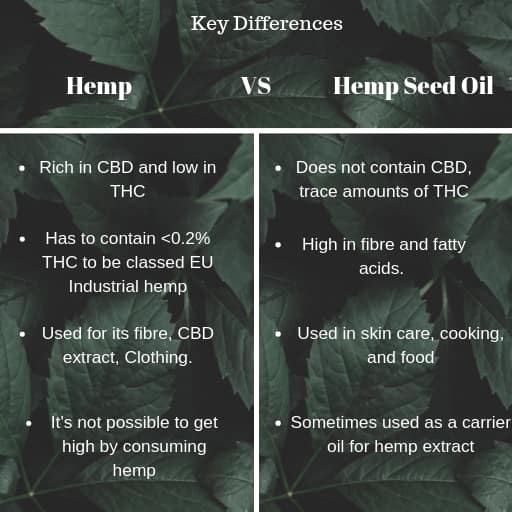
The CBD market is not currently directly regulated. As a result, ensuring what you are buying contains what it says it does and is CBD Oil in the UK (and beyond) can be a challenge. However, there are a couple of quick ways you can mitigate this problem.
Reputable brands will check their products at a batch level via an independent third-party lab. This ensures the product contains what it says it does and is free from contaminants.
These tests should be available for you to view and verify if required.
Full, Broad Spectrum or CBD Isolate?
You might have seen CBD oil labelled as full spectrum and broad/narrow spectrum.
This terminology can be confusing to new CBD users, and as a result, its important to note not all CBD oil is the same. Let’s summarise what these are before we move ahead:
Full spectrum CBD oil refers to the oil being a ‘whole hemp plant’ extract. Consequently, the end product contains traces of THC (not enough to induce an intoxicating effect) and a variety of other cannabinoids, along with terpenes and other plant matter.
Full spectrum CBD can taste earthy, and the less refined oils are undoubtedly strong in flavour! However, the carrier oil also has a significant impact on taste, and MCT oil can help provide a more neutral taste along with improved bioavailability.
Broad spectrum CBD oil is the same as full-spectrum CBD, but it contains zero THC. The oil is developed through an additional refinement process (which requires different equipment), and thus it can be more expensive to buy.
CBD isolate based oils feature purified Cannabidiol (99%+) and a base carrier oil. CBD Isolate oils are usually the least preferred, research suggests cannabinoids and terpenes found in full and broad spectrum oils are thought to work synergistically together, for an optimized effect when compared to CBD on its own.
This is also known as the entourage effect.

How is CBD Oil made?
CBD can be extracted from hemp using a variety of complicated methods.
Some utilize solvents, and others use highly pressurized CO2 to separate cannabinoids from plant matter. CO2 extraction is considered the benchmark for high-quality CBD, due to the lack of solvents and high efficiency.
Nature and Bloom CBD oil is extracted into CBD paste using supercritical CO2 and then refined using fractional distillation and enriched with terpenes. Giving us a range of premium CBD oils!
What is CBD Oil Used For?
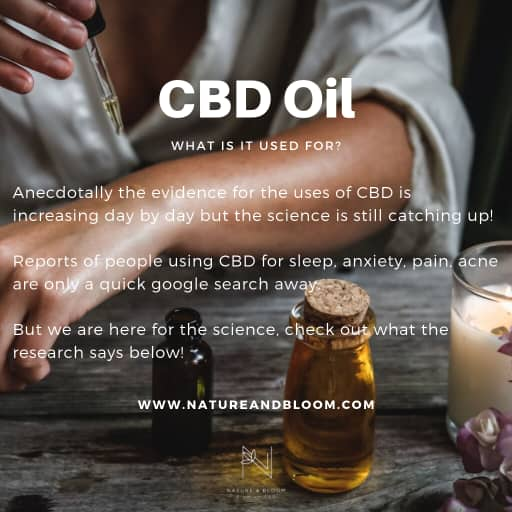
CBD oil is used around the world by countless people, and not all of the uses have associated scientific research, so a better question might well be “what is CBD oil good for?”
We will talk further on each piece of research (strictly on an informational basis) and discuss the scientific evidence behind each one a bit further down, but CBD is commonly used as a food supplement and natural remedy to boost your endocannabinoid system.
Studies have focused on particular conditions (click on each condition for associated studies), mostly using pure Cannabidiol as part of the research:
Through the endocannabinoid system, there is evidence that CBD can promote internal balance and research suggests CBD is well tolerated in humans, as we will detail further below.
History of Cannabis Use
The range of CBD oil benefits shouldn’t be a surprise when we consider that research into the beneficial effects of the cannabis plant has been impossible for decades due to the legality of the plant.
The modern illegality of cannabis ignores the fact it was used as a medicine for millennia.
In both the United States and Europe in the late 1800s, medicines containing cannabis or cannabis extract were available from your local pharmacy or doctor.
Hemp was also the backbone of the industrial age, with the Royal Navy’s ropes, sails, and even uniforms being made entirely from hemp for centuries.
The plant even provided an excellent food source, as hemp flour and hemp seeds offered a low-cost, nutritious source of fatty acids, proteins and more.
As a species, our developing understanding of cannabis, CBD and THC were brought to an abrupt halt when marijuana was prohibited in the early 20th century.
It is only the recent growing legalisation trend in places like California and Canada that have put cannabis back on the map as a potential source of health benefits, and the resulting academic studies have found some interesting results.
But how is it possible that such a simple plant can have so many benefits?
The answer lies in the endocannabinoid system:
CBD and the Endocannabinoid System
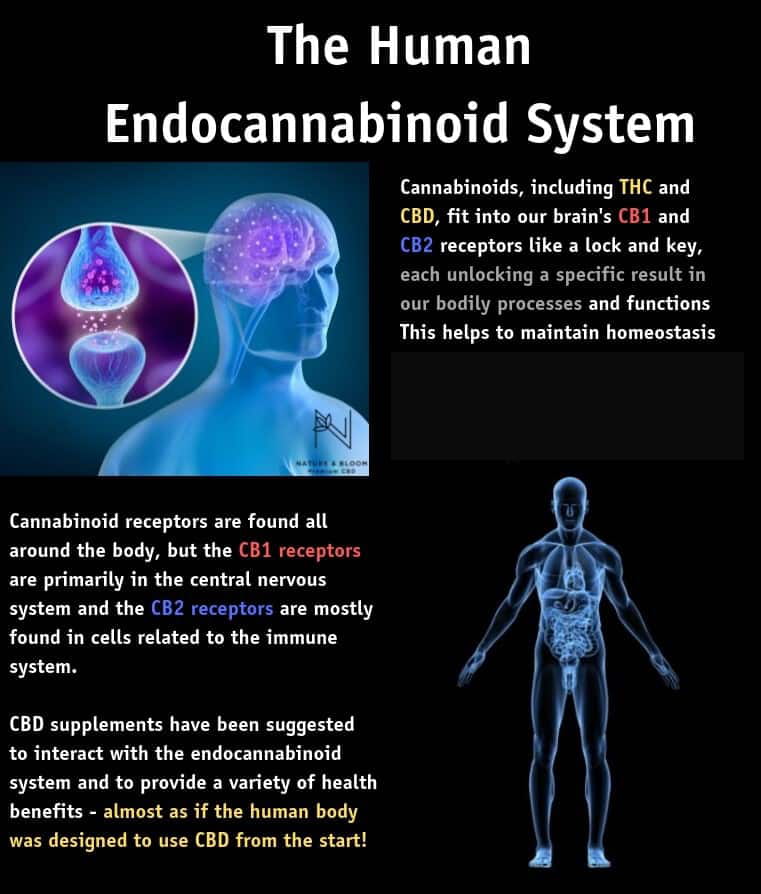
Considering how long cannabis has been used throughout humanity’s history, you may be surprised to hear that CBD was only first isolated successfully in 1964.
This is in addition to the fact that the first steps taken in understanding the endocannabinoid system only took place in the 1990s by an Israeli scientist called Raphael Mechoulam.
What is the Endocannabinoid System?
The human body is made up of several systems, each made up of a selection of organs and other body parts, and each tasked with a specific function, for example:
- The respiratory system
- The cardiovascular system
- The central nervous system
The endocannabinoid system is another internal system, just like these. Still, it helps to regulate all of the other systems and keep them in balance, which in turn promotes homeostasis and an overall state of wellbeing.
The simplest way to think of the endocannabinoid system is as a series of keys and locks.
The keys are the cannabinoids: THC, CBD, and the other 111 less well-known ones.
The locks are the cannabinoid receptors found within the human body:
The CB1 receptors are most commonly found in the brain and spine. They help us to manage our sleeping patterns, pain, appetite and even memory.
The CB2 receptors can be found all around the body and relate primarily to the immune system, helping to fight illness and manage inflammation.
CBD causes a reaction that blocks these receptors from binding to other cannabinoids – an action which helps to rebalance the body’s internal systems.
This is what is thought to cause the wide range of benefits claimed from CBD oil, especially surrounding pain management, sleep, stress and anything else related to the cannabinoid receptors.
These receptors are very complicated in the way they interact with the body’s numerous other systems and the different cannabinoids, and research is ongoing.
Some researchers even theorise about the presence of an as-yet-undiscovered CB3 receptor.
One thing is for sure, the endocannabinoid system is a crucial part of maintaining a healthy balance within the human body, and CBD is thought to promote actions that allow this to occur.
So how can you use this knowledge to get some real, measurable benefits from CBD?
What are the Benefits of CBD Oil?
Here we discuss what researchers are exploring as the potential uses of CBD.
Note: these studies are for informational use only to educate you on what research has been conducted to date. For medical advice please talk to your doctor.
Benefits of CBD Oil for Sleep

Using CBD to improve sleep is one of the most common reasons users try CBD in the first place.
Since the side effects of smoking cannabis include laziness and lethargy, some people are often hesitant to try CBD because they think it’ll have the same impact on them.
Luckily, these effects are the result of ingesting or smoking THC, not CBD, so there is nothing to worry about here – you can even take CBD and drive.
But if this is the case, how does CBD help with sleep?
The answer, like so many of the solutions around modern day health issues, lies in stress.
Modern culture means we are getting more and more stressed, and this, of course, has a huge knock-on effect when it comes to the quantity and quality of our sleep, too.
In direct correlation with stress, the quality of our sleep has been decreasing consistently with time.
However, when CBD interacts with the endocannabinoid system and the central nervous system, it helps us to respond more healthily to stressful stimuli and to avoid the related tension.
Studies have suggested that relatively high doses of CBD can have a direct result on the quality and length of our sleep.
More recent studies have also found beneficial results in both sleep from using CBD, again suggesting this is due to the way it helps reduce stress.
Benefits of CBD Oil for Anxiety & Depression
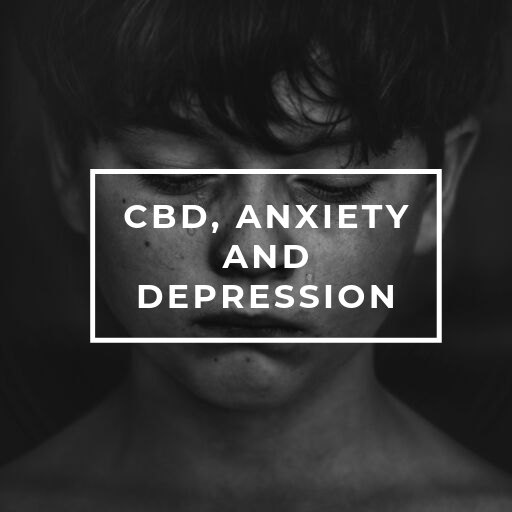
Outside of using CBD for insomnia, depression and anxiety are the most common reasons why people use CBD.
But what’s the evidence associated to the use of CBD for anxiety?
There is a fair amount of pre clinical evidence at this stage that CBD can have similar effects as a natural antidepressant.
In all of the studies into CBD’s benefits, ones that find antidepressant effects are among the most numerous.
Results for anxiety are similarly thorough, and considering CBD helps promote a feeling of relaxation, this perhaps shouldn’t be surprising.
These results tie directly in with sleep and stress as discussed above, and research has suggested that CBD could potentially help support the insomnia caused by anxiety.
Anecdotal reports also suggest that if you’re struggling to get a good night’s sleep and believe anxiety, stress or depression could be to blame, CBD could be worth a shot.
After all, other antidepressants use chemicals to spur changes in our body’s serotonin and their side effects can be debilitating, including:
- Anxiety
- Dizziness and feeling nauseous
- Blurred vision
- Decreased libido
However, the endocannabinoid system provides similar results to both the serotonin and dopamine systems, and research suggests CBD oil for depression could be a natural and healthy way to boost your endocannabinoid balance.
CBD Oil Benefits for Pain Management
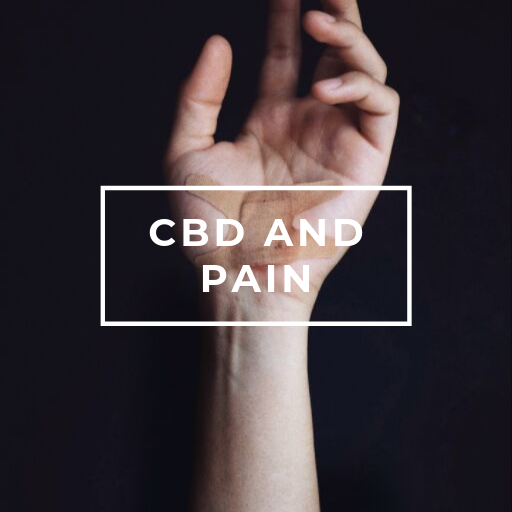
Cannabis has been used to help manage chronic pain for over 10,000 years, so it shouldn’t be surprising that the evidence here related to CBD for pain management is relatively insightful.
Here are just a few recent research studies examining these of CBD oil for pain management under research settings:
- A study from 2008 reviewing how cannabinoids can interact with pain signals. Including an analysis of how the anti-inflammatory and analgesic properties of CBD disrupt pain.
- Research from The University of Belgrade looked at how cannabis can reduce chronic pain — theorising that the anti-inflammatory properties of CBD could reduce pain.
- The University of Turin studied the current literature around the delivery systems for cannabinoids and the associated impact on pain. Agreeing with other research to date, suggesting CBD can support those suffering from chronic pain.
- A 2016 preclinical study involving mice tested the use of topical CBD for arthritic pain. Finding that the topical application of CBD reduced pain via an anti-inflammatory effect.
- A report suggested the use of CBD oil could support a reduction in painful muscle spasms originating from MS (Multiple Sclerosis). While the results from this particular set of evidence is early and small in numbers, it encourages more research into the area.
CBD Oil Benefits for High Blood Pressure
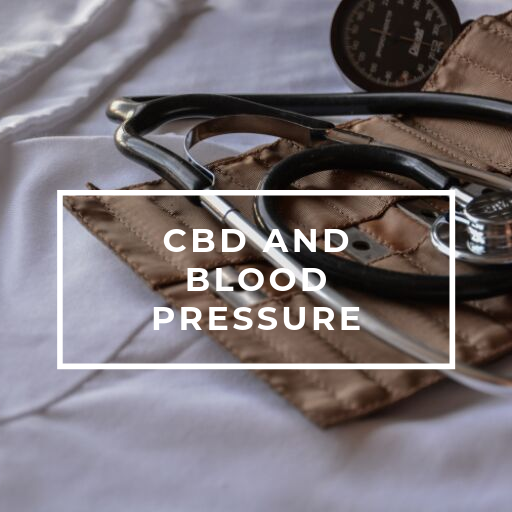
Cannabis was thought to interact with blood pressure for a long time, but repeated studies were inconclusive despite some being extremely positive.
However, more recent studies on how to use CBD for high blood pressure have been much more consistent in their conclusions.
A recent study found that a single dose of CBD was enough to reduce blood pressure in multiple patients, and concluded by stating that “resting blood pressure was lower after subjects had taken CBD and that CBD blunted the blood pressure response to stress, particularly in the pre-and post-stress periods”.
CBD and blood pressure are undoubtedly tied tightly together, and once again, these discoveries are likely related to the close connection between the endocannabinoid system and cannabinoids.
CBD Anti Inflammatory Benefits
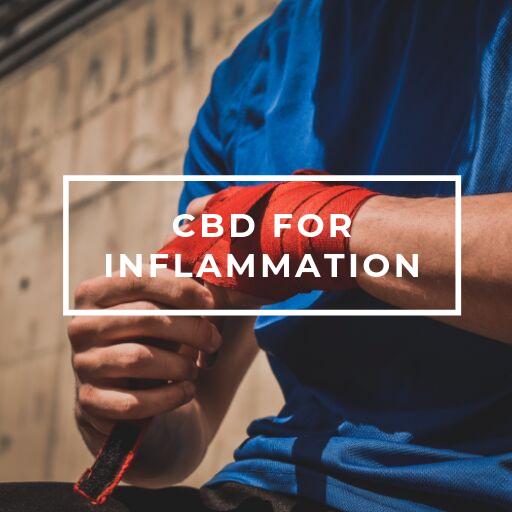
CBD for inflammation is perhaps the most important topic on this page since so many problems are caused by different forms of inflammation around the body.
This can include, but isn’t limited to:
- Chronic pain
- Alzheimer’s
- Heart conditions
- Arthritis
- Skin conditions
A study into the effects of cannabis on inflammation found that cannabis was 20x more effective than aspirin and twice as effective as hydrocortisone.
Unfortunately, as this study used the hemp plant as a whole, it’s difficult to assert how much of the improvement came from which cannabinoid in isolation or it it’s due to the combination of the compounds found in cannabis.
Nonetheless other research studies are more conclusive, directly indicating CBD specifically helps to reduce muscular inflammation and inflammation in the digestive system. Evidence of CBD’s results in inflammatory research is both numerous and thorough.
CBD Skincare Benefits

As you’ve already learned, CBD interacts with our endocannabinoid system to promote homeostasis.
However, you might wonder if the proposed anti-inflammatory effects of CBD are beneficial when used topically.
CBD has been suggested to reduce inflammation in our pores, which is the leading cause of acne.
The study above found that CBD reduced oil production on the surface of the skin – with excess oil being a leading cause of acne and uneven skin.
CBD Oil for Weight Loss Benefits
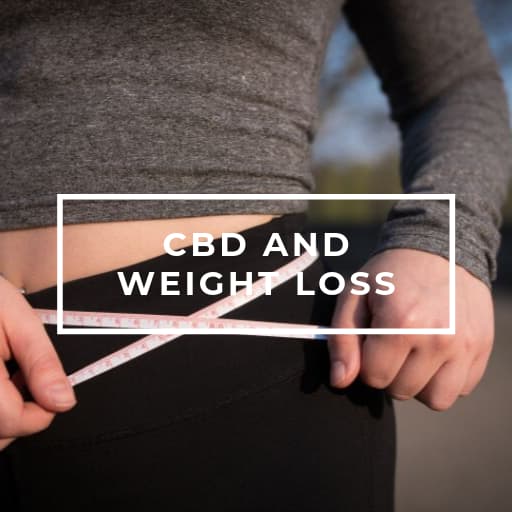
This might be the most surprising of all of the pieces of research associated to the use of CBD oil.
After all, cannabis is infamous for “the munchies” and “couch lock” from the THC high.
Despite this, a 2016 academic study found some positive results when testing CBD’s effects on the burning of premature fat cells.
In laymen’s terms, they found that applying CBD to white adipose tissue (the sort of fat that stores energy and stays within our body) rapidly turned it into brown adipose tissue (the type of fat that is burnt as energy).
More research is needed, but once again, this is a potential benefit of CBD that holds a lot of promise.
CBD For Broken Bones
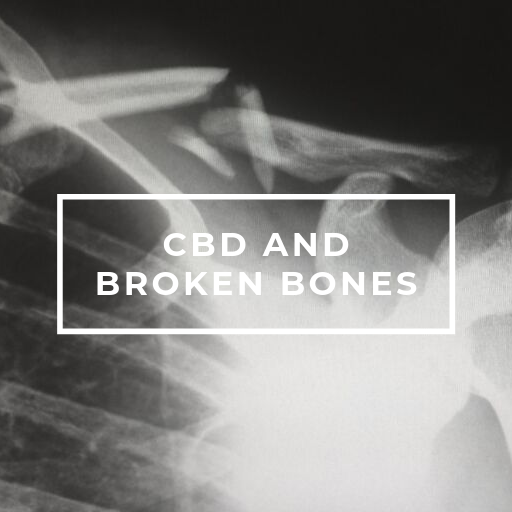
While results are fairly early and less research has been conducted, a study in 2015. concluded that CBD can help speed up the healing of bone breaks and fractures.
A study from The University of Tel Aviv suggests this ties in with inflammation, given the fact when bones break the area naturally becomes inflamed, and researchers believe the anti-inflammatory effects of CBD have a part to play in the recovery of broken bones.
Other studies have found that CBD increases the thickness and strength of bones once healed and that it can even have therapeutic benefits for spinal injuries, having a positive result on the number of minerals lost due to such trauma.
More recently, a study suggested that endocannabinoids are just as present within the human skeleton as they are in our brains.
CBD For Nausea
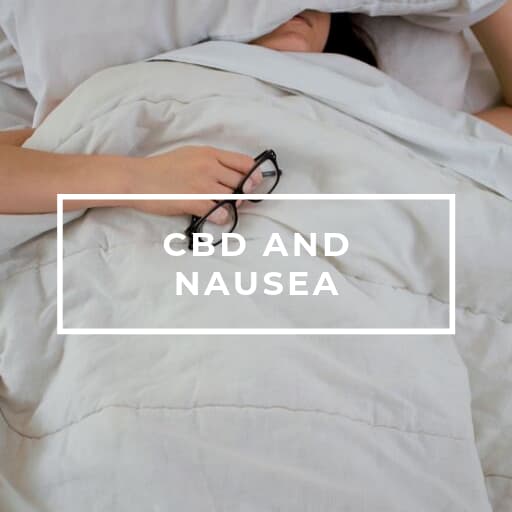
From chemotherapy side effects to discomfort caused by digestion issues, nausea is among the most uncomfortable of the side effects and symptoms caused by other conditions.
However, recent studies have found that CBD helps to reduce numerous forms of nausea, whether acute or anticipatory.
Evidence suggests that CBD can reduce both nausea and vomiting, whether induced by chemotherapy or otherwise.
Since the causes of nausea or varied and broad, a lot more research is needed here and especially double-blind clinical trials, but the benefits so far seem to be extremely positive.
CBD Oil for Migraines
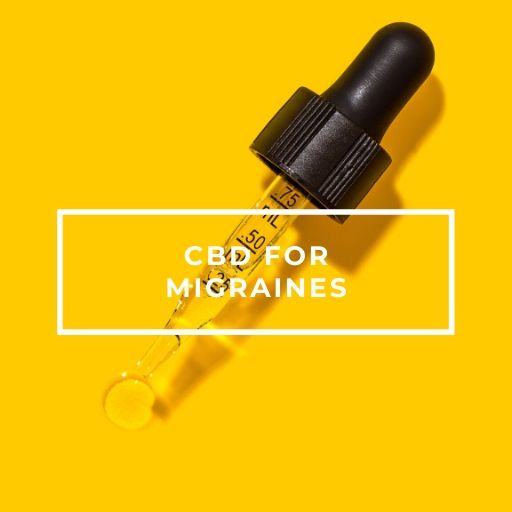
In comparison to the other research results on this page, studies into CBD’s effect on migraines are in very early days and relatively limited.
This is a shame because migraines can be highly obstructive to the daily lives of sufferers, and anecdotally cannabis itself has long been suspected of helping drastically reduce migraine symptoms.
You’ll be happy to know then, that the studies that do exist are unanimous in concluding that CBD and THC were both some of the most effective tools to reduce migraine symptoms in research settings.
We’ve covered some of the most popular ways that research suggests CBD can help the body, and provide you with some evidence around this, but what about the mind?
Let’s take a look:
CBD Antipsychotic Effects
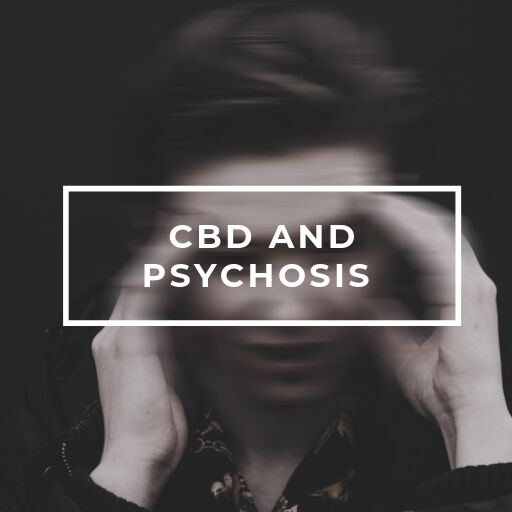
At this stage, we have to be clear and say if you or a loved one are suffering from mental health issues, please contact a healthcare professional immediately.
Psychosis and related issues can be precarious, and you should never attempt to resolve them without help.
However, CBD studies suggest the compound has some antipsychotic effects, and early research suggests CBD has the potential to be beneficial in calming symptoms associated with schizophrenia, schizo-affective disorder and psychosis.
In particular, a recent study at King’s College London studied a group of 33 participants, all of whom were experiencing distressing psychotic symptoms.
Sixteen patients were administered Cannabidiol and the remaining seventeen a placebo.
MRI scans carried out after dosing revealed reduced abnormal brain activity in those given CBD, unlike those given a placebo where activity remained the same as before the dose. Indicating that CBD helps readjust brain activity to normal levels.
Researchers also document that CBD could indirectly support psychiatric symptoms.
CBD Oil for Addiction

It might seem pretty surprising that a compound that’s found in a plant famous for being illegal and addictive is being researched for its use in addiction.
A 2015 research review of the use of CBD for addiction concluded that “the evidence appears to at least support a potential beneficial treatment for opioid abuse”
There is some research examining the use CBD in preventing relapses in those who have already stopped.
For example: In a 2018 preclinical trial, researchers found that CBD reduced the anxiety and impulsiveness in mice, similar to behaviours inherent in drug addicts, but also indicated improved chances of staying off drugs without relapsing.
Another clinical study published in 2019 involved 42 adults with a history of heroin use. Researchers found doses of between 400mg and 800mg CBD reduced cravings to re-use, matching with earlier preclinical research.
Quitting alcohol or drugs usually warrants a comprehensive and holistic approach but the documented research is no doubt insightful.
Side Effects of CBD Oil
Now that we’ve gone through a bunch of the potential benefits of CBD oil and provided scientific research for each of them, your next question might well be about CBD oil side effects.
After all, it comes from an illegal drug and provides all of these uses; there must be some downsides, too, right?
Not really!
Like anything you consume, there is potential for side effects of CBD oil.
Still, according to the WHO, these are generally very rare and not experienced by the vast majority of people who use CBD.
However, we will list them here for safety, and if you experience any of them after using CBD, please discontinue use immediately and seek help from a medical professional:
- Changes in appetite
- Fatigue
- Dizziness
- Irritability
- CBD can interfere with particular prescription medications such as Warfarin (similar to grapefruit juice)
- Constipation
As reliable and as carefully executed as research studies are, they can only ever tell you how CBD works for the average person, not for everybody – so be careful when using any supplements like CBD.
If you experience any of the above side effects after taking CBD oil, immediately cease use of CBD and see your GP.
CBD Interactions with Other Drugs
If you’re thinking of taking CBD to help you or keep yourself healthy, you may be wondering if there are any drugs that shouldn’t be mixed with CBD.
This is extremely rare, and as CBD is a natural substance that’s a supplement to your diet, the answer is almost no.
However, studies have found one or two critical interactions to avoid, and you should always talk with your GP before trialling any supplements including CBD, each person is different, and your GP can give you direct advice.
Firstly, doctors recommend CBD shouldn’t be taken while pregnant primarily as there isn’t enough research available around the topic.
While there isn’t conclusive evidence, research suggests CBD itself isn’t harmful to the foetus.
Still, it has been found to increase the permeability of the placental barrier, which can stop your body from protecting your baby correctly and put it at risk from other substances.
Studies suggest there are potential interactions with certain anti-epilepsy drugs (AEDs), which can disrupt the absorption of AEDs.
Additionally, Cannabidiol has potential to interact with other prescription medication, in particular, those which are metabolised via a protein called P450 (the same interaction which grapefruit juice can have on certain drugs).
This group of enzymes include CYP3A4, which metabolises both CBD and over 60% of prescription drugs, this enzyme can alter the efficacy of CBD bioavailability, and significantly increase or decrease it depending on the specific interaction.
Related Article: CBD Drug Interactions
How to Use CBD Oil

Now that you know that CBD oil is no fad, the next question is, how should you take it for the best results?
What are the best ways to take CBD oil, in terms of both dose and method?
The fact of the matter is, no one dose which suits everybody.
The quality of your CBD oil will affect the dose, as will your weight, your endocannabinoid system, and your end objective.
This would be a problem if not for the fact CBD is proven safe even in high doses. In the sense that research studies have successfully trialled individual treatments above 600mg, multiple times a day.
One 600mg dose of CBD is more than an entire bottle of 500mg CBD oil, one of the most popular strengths for new CBD oil users.
As a result, the best way to find your ideal dose is to start low and slow, from one or two drops per dose a couple of times a day, slowly absorbed under the tongue, and then to increase this dose slightly each day until you find your sweet spot.
The concentration of the oil can impact your treatment significantly, as some oils are more than triple the strength of others in CBD content; always start low and slow!
With that said, it is generally most popular to use CBD oil with a dropper to control your dose as accurately as possible.
Products like CBD pills and CBD gummies do provide a more convenient way to take CBD, but only once you have figured out your ideal dose, as they can be difficult to adjust as they come pre-dosed per unit.
To learn more, check out our guide on dosing CBD.
CBD Vape Oil
A popular way to use CBD oil is by vaping it.
Note – there are specific CBD oils used for vaping and those for sublingual use, some can do both, but these are not as popular here in the UK.
Most CBD oils are either for sublingual use or specifically for vaping (e-liquids or CBD concentrates).
However, CBD vape oil usually only contains CBD Isolate (along with a Vegetable Glycerine or Propane Glycol), and are missing a wide range of other beneficial compounds from the hemp plant such as other cannabinoids, flavonoids and terpenes.
On the flip side, CBD wax, and other concentrates are an effective way to either dab, vape, or make your own CBD e-liquid that does contain these ingredients, helping those who vape to feel the “entourage effect”.
If you want to enjoy concentrates but don’t know which device to buy check our our guide on the best dab pen available today.
It’s also worth mentioning that vaping has the highest absorption rate for CBD (over 55% bioavailability).
More generally, vaping CBD oil can be beneficial in some instances, for example:
- Vaping CBD concentrates for those needing a high and immediate CBD dose
- As a remedy to try and quit smoking cannabis
- For individuals who already vape
- Before bed to aid relaxation
- As an on the go way to use CBD discreetly
CBD Capsules
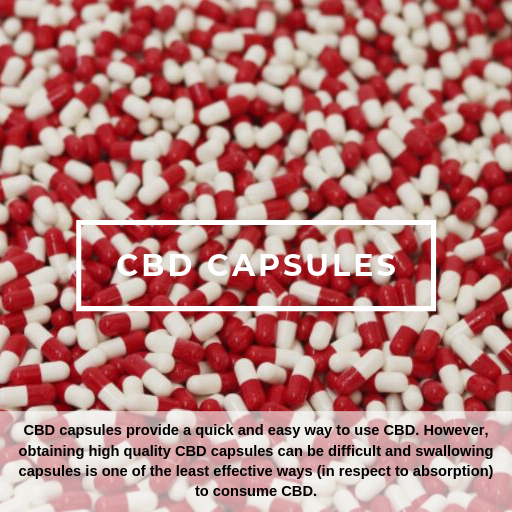
CBD capsules are an excellent way to take a pre-defined dose each day, especially for people who dislike the taste of CBD oil drops, individuals with motor movement disabilities and the elderly.
Generally, pills are also slightly more expensive, meaning drops will always win out if it makes no significant difference to you.
Despite this, we do not doubt that you can find some high-quality CBD capsules with a little research, and for people who can’t stand the taste of high-quality CBD oil or don’t want to be tasting it daily, pills or capsules could be a potential solution.
Final Word
We hope this guide and the linked research studies have gone some way in helping you to understand the science conducted to date around the use of CBD oil.
If you haven’t already, we recommend spending some time clicking the source links on this page and reading some of the studies.
While the language may be a little hard to parse at times, these are the science-driven studies where everybody else gets their information.
This will allow you to go straight from the source, and avoid marketing speak, propaganda or disingenuous debate.
We will bring you more regular deep dives into the world of CBD, including citations, links to academic journals and studies, so why not check back from time to time and see how things have developed?
One thing is for sure – the world of CBD is an exciting one, as well as one where the research was unjustly halted for decades – and discoveries are just around the corner!

